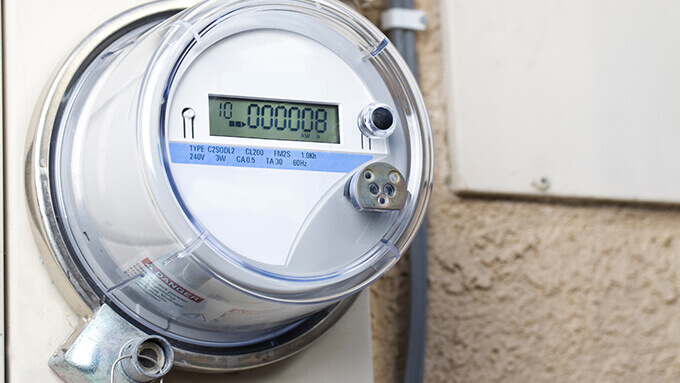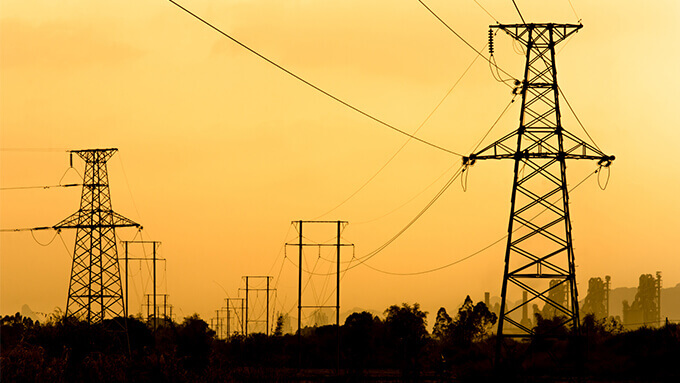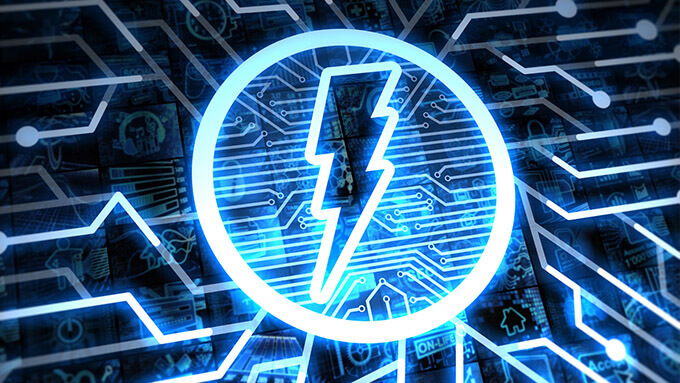Recent Developments in Energy Law
Introduction
The ongoing transformation of Türkiye’s energy sector demands that legal frameworks evolve just as rapidly. Goals such as increasing the share of renewables, enhancing supply security, accelerating investment timelines, and ensuring operations remain environmentally sustainable have driven significant legislative changes recently. In this context, the draft amendments to the Regulation on Unlicensed Electricity Generation in the Electricity Market aim to streamline application and connection procedures, while Law No. 7554 introduces new provisions in the areas of environmental protection, mining, renewable energy, and the electricity market. Together, these measures are designed to shorten permitting periods for energy projects and establish a sustainable energy infrastructure capable of meeting the sector’s evolving needs. This article examines the core reforms introduced by these two legislative initiatives and assesses their broader impact on Türkiye’s energy law landscape.
Law No. 7554
Published in the Official Gazette No. 32965 on 24 July 2025 and entering into force on the same day, Law No. 7554 on Amendments to Certain Laws (“Law No. 7554”) amends:
- The Environmental Law No. 2872 (“Environmental Law”),
- The Mining Law No. 3213 (“Mining Law”),
- The Law No. 5346 on the Utilization of Renewable Energy Sources for the Purpose of Generating Electrical Energy (“RES Law”), and
- The Electricity Market Law No. 6446 (“Electricity Market Law”).
These amendments are closely aligned with the targets outlined in Turkey’s 2022 National Energy Plan, which aims to raise the share of electricity generated from renewable sources from the current 45% to 65% by 2035. A key step toward this target is cutting the permitting and approval period—currently up to 48 months—to less than 24 months. This acceleration is expected to advance Türkiye’s green energy transition, lower greenhouse gas emissions, foster sustainable development, and significantly reduce the country’s energy import bill[1].
By enabling faster deployment of wind and solar projects, these measures will reduce reliance on imported natural gas and coal, reinforce energy supply security, and help narrow the current account deficit. However, the intermittent nature of renewable generation can disrupt system balance during periods of low output, necessitating the presence of reliable baseload generation to maintain stability. This, in turn, has driven the need for reforms to ensure strategic minerals are efficiently integrated into the national economy.
Amendments to the Environmental Law
The Environmental Impact Assessment (“EIA”) process is a formal procedure to identify potential environmental impacts of planned projects and to prevent or mitigate adverse effects. The EIA Regulation specifies which projects are subject to a full EIA and which require preliminary review. Projects such as solar power plants exceeding 7.5 hectares (excluding rooftop and façade systems) and wind farms with between 1 and 15 turbines fall within its scope.
Under the amendments introduced by Law No. 7554[2] , the phrase “EIA[3] not required” has been reframed to eliminate the public perception that projects can proceed without any environmental review. Entities undertaking activities with potential environmental impacts must now prepare either an EIA Report or a project introduction file. The process will conclude with either a “positive EIA decision” or a “no EIA required” decision. Importantly, applications for incentives, approvals, permits, and licenses may be filed without waiting for the latter decision, though construction or implementation may not begin until the process is finalized.
Amendments to the Mining Law
The amendments to the Mining Law[4] aim to expedite licensing for exploration and operation, clarify environmental obligations, and strengthen inter-agency coordination. Notably, the concept of “rehabilitation” has been formally defined to cover the restoration of areas disturbed by mining activities. A dedicated “rehabilitation fee” and special account system have been introduced, with existing license holders required to deposit the equivalent of their guarantee letters into the account within one year. If unpaid, guarantees will be liquidated and transferred to the account.
A special “board” will be established to resolve disputes between institutions during the permitting process. All necessary permits must now be obtained before a license is issued, with the process capped at four months. Mining activities in state forests will be granted a free permit for 24 months, extendable by 12 months. Agencies that initially approve a project during the EIA process may not subsequently withdraw their approval. Once a license has been granted, operations may continue even if new permit requirements are introduced—unless cultural heritage is discovered, in which case the license will be terminated with compensation.
Amendments to the RES Law
For wind and solar projects, permitting and licensing have been significantly simplified[5]. All procedures related to forest land have been consolidated into a single process valid for the pre-license period, extendable through the full term of the generation license. No additional permits are required for preparatory works such as measurement or drilling, and applications must be processed within two months. To enhance environmental oversight in sensitive areas, ornithological monitoring is now mandatory for projects located along bird migration routes.
Furthermore, zoning and construction permits for these projects may now be issued directly by the Ministry of Energy and Natural Resources, bypassing local authorities to avoid bureaucratic delays and inconsistencies in local practice. Urgent expropriation decisions will be accepted as valid documentation during licensing, reducing uncertainty for investors. Discounts on permits, leases, and easements have been extended for another five years, lowering project costs and easing implementation.
Amendments to the Electricity Market Law
Two temporary measures have been adopted to accelerate the roll-out of renewable energy investments[6]. First, until 31 December 2030, private properties required for renewable energy generation may be acquired through urgent expropriation. This authority may be extended for an additional five years to maintain the pace of investment.
Second, licensed generation facilities commissioned before 31 December 2024 but lacking a building or occupancy permit may continue to operate provided they meet specific technical and safety standards. Once a structural compliance report is prepared and responsibility assumed by qualified professionals, these facilities will be granted a “Generation Facility Compliance Certificate.” This ensures uninterrupted use of existing capacity while removing legal uncertainty for investors.
Draft Amendments to the Regulation on Unlicensed Electricity Generation
The Energy Market Regulatory Authority has released a draft regulation on unlicensed electricity generation for public consultation until 1 August 2025[7] . The proposal aims to simplify application and evaluation processes, creating a more predictable environment for both investors and grid operators.
Technical priority criteria will be revised to favor renewable projects located at the same measurement point as their consumption point. In cases where overlapping project sites cause procedural deadlock, revisions will be permitted. The technical evaluation stages for geothermal, biomass, wind, and solar projects will be clarified, and rules on facility mergers and divisions will be tailored to the resource type. Stricter and more deterrent penalties will apply to facilities commissioned before acceptance procedures are complete, reinforcing both safety and compliance.
Conclusion
Türkiye’s recent energy law reforms are designed to bring renewable energy projects online more rapidly and to make regulatory processes more transparent and predictable. Shorter permitting periods, reduced bureaucracy, and clearer environmental obligations provide significant advantages to investors while strengthening energy supply security. Changes to unlicensed generation rules promise a more transparent, efficient framework for both investors and grid operators. Collectively, these measures mark a significant step toward achieving the target of 65% renewable energy by 2035, supporting Türkiye’s energy transition and sustainable development objectives.
- General Justification of Law No. 7554
- Amendments Introduced under Article 1 of Law No. 7554
- Amendments Introduced under Article 1 of Law No. 7554
- Amendments Introduced under Articles 2, 3, 5 and 12 of Law No. 7554
- Amendments Introduced under Articles 15 and 16 of Law No. 7554
- Amendments Introduced under Articles 17, 18, and 19 of Law No. 7554
- Energy Market Regulatory Authority, Unlicensed Electricity Generation in the Electricity Market, available at: https://www.epdk.gov.tr/Detay/Icerik/4-16096/elektrik-piyasasinda-lisanssiz-elektrik-uretim-yo (Date of Access 12.08.2025)
All rights of this article are reserved. This article may not be used, reproduced, copied, published, distributed, or otherwise disseminated without quotation or Erdem & Erdem Law Firm's written consent. Any content created without citing the resource or Erdem & Erdem Law Firm’s written consent is regularly tracked, and legal action will be taken in case of violation.
Other Contents

Unlicensed electricity generation began to attract significant interest among businesses and industrialists in the post-pandemic period due to steep fluctuations in electricity prices. Particularly during this period, as fluctuations in the market price of electricity directly…

The load increase / reduction instructions issued by the Türkiye Elektrik İletim Anonim Şirketi (“TEİAŞ”) and market participants’ obligations relating to real-time balancing usually become a point of interest following power outages, malfunctions, and/or administrative investigations...

Despite the emphasis on “small-scale generation” regarding unlicensed (license-exempt) electricity generation plants in the Regulation on Unlicensed Generation in the Electricity Market (“Unlicensed Regulation”) , especially in the last three years, quite a few unlicensed electricity generation plants have...

A comprehensive inclusion of renewable resources in the energy mix makes the system less predictable and flexible. To offset this, additional flexibility is expected from the demand side. This flexibility may be attained is through by implementing demand-side awareness and market participation of the...

In the physical electricity trade, the metering of electricity plays a very important role in several respects such as (i) the metering of actual deliveries and receipts of electricity, (ii) estimation of the electricity generation and consumption in advance, (iii) determining the price payable by the parties for electricity supply...

Turkish electricity market has been going through turbulent times particularly in 2022. Steep increases in commodity prices that are used in electricity generation have urged the policy makers to take measures for minimizing further price increases in the electricity market as well as for maintaining security of supply...

The first regulations on electricity storage activities were included in Electricity Market Law No. 6446 dated 14/3/2013 ("EML" or "Law"). Subsequently, the Regulation on Storage Activities in the Electricity Market ("Storage Activities Regulation"), which implements the law, entered into force through its publication...

Electricity Market Law numbered 6446 (“EML” or “Law”) entered into force through publication in the Official Gazette dated March 30, 2013 and numbered 28603. Share transfers of companies that operate in the energy market became one of the newly regulated issues with the publication of the Electricity...

The Electricity Market Regulatory Authority (“EMRA”) amended the Regulation on the Unlicensed Electricity Generation in the Electricity Market. Within this context, EMRA prepared three different exposure drafts amending such Regulation on 15.05.2015, 26.10.2015 and 26.11.2015. Finally, EMRA has finalized...

The Regulation Concerning Unlicensed Electricity Generation in the Electricity Market (“Regulation”) has been amended by the amending regulation which was published in the Official Gazette numbered 31920 and dated 11.08.2022 (“Amending Regulation”). The Amending Regulation has introduced...

The Regulation on Green Certificate for Buildings and Developments ("Regulation"), which was prepared for the purpose of reducing the negative impacts of buildings and developments on the environment by using natural resources and energy efficiently, entered into force through publication in...

In response to the rapid increase of use of electric vehicles, legislative and regulatory initiatives have been taken to create a legal framework for electric vehicle charging services. On 21.12.2021, Electricity Market Act numbered 6446 (“EMA”) was amended to introduce charging services...








